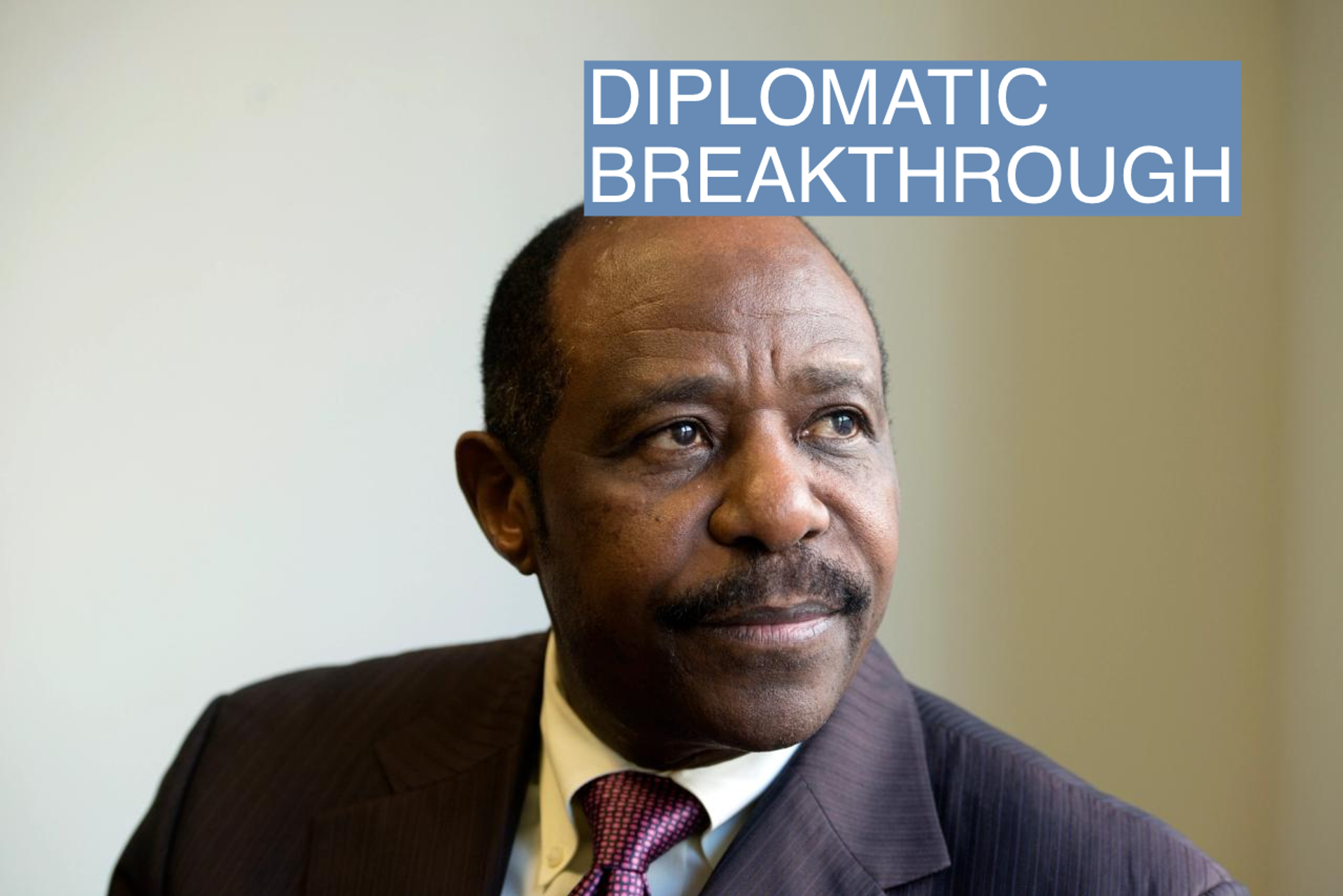The Scoop
Imprisoned political activist Paul Rusesabagina, whose story inspired the Oscar-nominated film Hotel Rwanda, will be released from his incarceration as early as Saturday morning, senior Rwandan and Qatari officials have told Semafor.
At the conclusion of a key cabinet meeting on Friday, Rwanda’s Minister of Justice, Emmanuel Ugirashebuja, plans to announce that Rusesabagina and twenty others sentenced with him on terrorism-related charges will have their prison terms commuted. Their underlying convictions will remain intact, according to two senior Rwanda government officials.
“Should any of these individuals return to the criminal activities for which they were originally charged, the sentence will be automatically reimposed,” one official said.
Rusesabagina, a high-profile critic of Rwadan President Paul Kagame, became a global celebrity after Hollywood memorialized his efforts to save more than 1000 Hutus and Tutsis during during his country’s 1994 genocide. But in 2021 he was sentenced to 25 years in prison on terrorism charges for his role leading the Rwandan Movement for Democratic Change, the dissident coalition whose militant wing Rwandan authorities accused of violent attacks resulting in civilian deaths.
Rusesabagina denied responsibility for the killings and in 2022 the U.S. State Department said he was “wrongly detained.” According to officials familiar with negotiations, that framing “evolved” in talks as the U.S. sought to acknowledge Rwandan concerns about the underlying security and terrorism issues involved in the case.
Rwandan officials plan to release a formal letter from Rusesabagina requesting a pardon from Kagame. In it, he expresses “regret for any connection” between his political work at the Movement for Democratic Change and acts of violence by its armed wing, as well as for “not taking more care to ensure that members” of his opposition coalition “fully adhered to the principles of non-violence in which I fully and deeply believe.”
Rusesabagina also writes that he will withdraw from Rwandan politics if released and “spend the remainder of my days in the United States in quiet reflection.” According to sources, the letter was prepared by Rusesabagina with assistance of his own legal counsels in the United States and Rwanda.
In this article:
Steve’s view
While details are still unfolding, both Qatar and the United States provided crucial help to secure Rusesabagina’s release. According to my sources, the Biden administration opened a channel from the White House that took a different approach to negotiations than previous U.S. government efforts, while the Emir of Qatar helped facilitate discussions about a “humanitarian” release. The countries reached a crucial compromise that opened the door to a deal by agreeing that Rwanda would not be expected to roll back the convictions of Rusesabagina and his associates.
A senior Rwanda government official told me that “the close personal relationship between Qatar Emir Tamim bin Hamad Al Thani and Rwanda President Paul Kagame played a key role in this equation, as did the very constructive tone from the White House seeking a reset in Rwanda-U.S. relations.”
While Semafor has not yet communicated with the Rusesabagina family, Qatari sources believe that after a short time in Kigali at the Qatar Embassy, the activist will be transported to Doha where his family may join him. And after some transitionary period, he will eventually travel to and live in the United States.
Notable
- Kagame’s views on this issue have evolved dramatically in a matter of months. Speaking on stage at a Semafor event in December, the president suggested he had no plans to release Rusesabagina and half-joked that it would take a foreign “invasion” to free him. “We’ve made it clear there isn’t anyone going to come from anywhere to bully us,” he said at the time.
- When I interviewed Kagame again this month at the Global Security Forum in Doha, he told me his government had begun discussions about freeing Rusesabagina, and struck a much softer tone, saying Rwandans “forgive the unforgivable” and “don’t get stuck with our past.”
